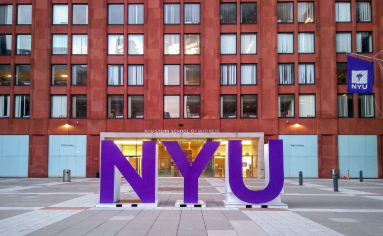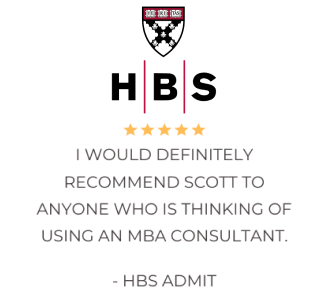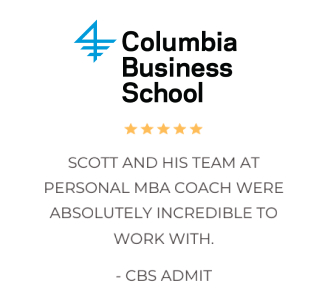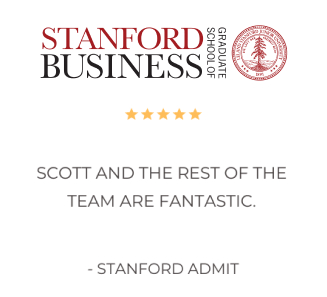This week, Personal MBA Coach sat down with our team of former M7 admissions directors and interviewers to gather answers to the most common MBA applicant questions.
1) What does an MBA admissions committee view as an applicant’s most important quality?
There is no magic characteristic that will make you an easy admit for a program. Instead, the committee will be considering several aspects of your candidacy when reviewing your application. The questions admissions directors will look to answer as they review your MBA application include:
- Will you be successful in their academic environment? (This is typically evaluated using GPA and standardized test scores.)
- What qualities and expertise will you bring to the classroom and community?
- Have you expressed the inclination to share this with your peers?
Business schools are looking for candidates with varying skill sets, but more importantly they are looking for candidates who understand how that will benefit the school’s community.
MBA admissions committees will also look at your work experience to determine whether you have demonstrated the potential for leadership. Most schools will also explicitly ask you for your post-MBA goals. In this case, committees are often evaluating whether your previous experience, paired with the school’s resources, will get you to where you want to be professionally.
2) What if I come from a non-traditional background?
Top MBA programs (not to mention future employers) are increasingly recognizing the value of diversity of thought and expertise for the business school experience and the bottom line. This makes the MBA classroom a welcome place for those applying from less represented industries and functions.
When applying with less traditional work experience, you will still be expected to demonstrate the ability to handle the quantitative rigor or an MBA program through your test score and/or track record of quantitative success in school or at work. This is because schools do not want to set you up for failure in the classroom. However, your unique accomplishments and expertise are often likely to help set you apart. Be sure to thoughtfully articulate the advantages of your unique experiences to the committee.
3) I have a low undergraduate GPA. Does this mean I am not competitive for top schools?
Top business schools review applications holistically, meaning that they typically will not preclude an applicant solely due to a single criterion, such as GPA (within reason). That said, if your GPA is below the target school’s average, you want to focus on achieving a strong test score to help overcome this.
The GMAT/GRE/EA offers a recent and standardized indication of your academic abilities, providing the committee with more confidence that you will succeed in the MBA classroom. Some schools will also consider your academic performance in a graduate program or supplemental coursework (e.g., Coursera or MBA Math).

4) How important is my GMAT/GRE/EA score?
The test score is really the only standardized indication of your academic abilities so it is important to put your best foot forward here. Do not be afraid to take the test multiple times as committees will typically view multiple attempts as a sign of your determination. The GMAT/GRE/EA also allows the admissions committee to stratify a large pool of candidates. Keep in mind that you are not applying in a vacuum, and you are being compared with other strong applicants applying during the same round.
We would advise, especially if you are from an overrepresented background, to retake the test if you (1) are not yet above the average score for your target school and (2) feel that, with the proper preparation, you can improve your score. You cannot predict how strong the other applicants’ candidacies will be.
5) Does it help to attend admissions events or visit campus before applying?
This engagement can be an important consideration for many (but not all) MBA programs. Every school evaluates your engagement with admissions differently. Some schools, such as Columbia and MIT, will observe whether you have attended admissions events (virtual, on, or off campus) to determine your level of interest in the program.
For schools that consider this, you will want to make sure you attend at least a couple of events before applying. Other schools, like Harvard, do not track this; therefore, you should spend your time elsewhere when preparing the application.
Remember that you should take the time to research good questions to ask MBA admissions officers before attending these events. You do NOT want to ask questions that you could easily find the answer to online.
At Personal MBA Coach, we help our clients navigate school visits, as well as coach them on what questions to ask admissions directors during meet-ups. Looking for MBA Admissions events near you? Check out this list of upcoming events.
6) Can I still work part-time while pursuing a full-time MBA?
If you are asking if you can promise your boss that you will still be available part time to continue doing the work you were doing pre-MBA, then the answer is: This is highly discouraged and likely would not work in your favor. The first semester of an MBA program is incredibly busy with multiple competing priorities and little flexibility. You do not want to spread yourself thinner or you’ll miss out on the experience that you’re investing so much in.
However, if squeezing in part-time internships during the semester is important to you, many schools have these types of opportunities, but you will have to do your research. For example, given Columbia’s location in Manhattan, students have copious opportunities to spend part of their week in an internship to broaden their experience and network in a given industry and/or function outside of the full-time summer internship experience.

7) Whom should I ask to write my letters of recommendation?
Pick recommenders you have worked closely with and who can speak to your leadership potential and the quality of your deliverables. An MBA admissions committee will not expect you to risk a bonus, promotion, or job by asking your direct supervisor if they are not supportive or aware of your plans. In this case, a dotted line manager, a project manager, or former manager either at your current or past employer are good options.
If you are working for your family business or own your own business and you are the boss, clients and other stakeholders often can write a strong recommendation for you.
8) I am a candidate from an overrepresented population, how can I make my candidacy stand out?
The most objective way to stand out is to have stronger than average test scores. Once you have maximized your score, focus on aspects of the application you have control of, such as engagement with the school (if they value this) and developing a strong overall application. (If you are working with Personal MBA Coach early in the application process, we can also look into stepping up at work or through your extracurricular activities.) Think about how you can uniquely add value to your MBA peers and focus on what sets you apart.
Another way to convince an MBA admissions committee that you are different from your peers with similar backgrounds is to specifically understand how you will contribute to the school and make those around you better. This would be a particularly good strategy for a school where one of the application essays is focused on campus contribution.
9) How important is a culture fit for an applicant?
Cultural fit is as important for you as it is for the admissions committee. You are going to thrive in a place that has the right opportunities and resources for you professionally, academically, and socially. An admissions committee will be able to evaluate your fit based only on the information you provide so, once again, do your research, and make sure you are clear about how your experiences, values, and goals align with what the school can offer in those three domains.
Additionally, part of your “fit” will be evaluated by how you can contribute to the community, so as you are learning about a school’s culture, think about how your interests and expertise will complement the school’s.
10) Do I need to know what career I want to pursue when I apply to an MBA program?
The short answer is no; however, the better question to ask would be whether your application needs to focus on a single professional short-term goal. In that case, yes, the best applications choose one goal to communicate to the committee. This makes for a clearer, more streamlined narrative when describing how you will engage with the school to achieve your professional goals.
Keep in mind that committees will not follow you around with your goals essay and require that you pursue only the courses and resources related to it. Once you matriculate, you will be able to seek out coursework, events, and opportunities across industries and functions.
Are you ready to take the plunge and start your Round 1 MBA applications?
Reach to Personal MBA Coach today to schedule a consultation with the founder!




















